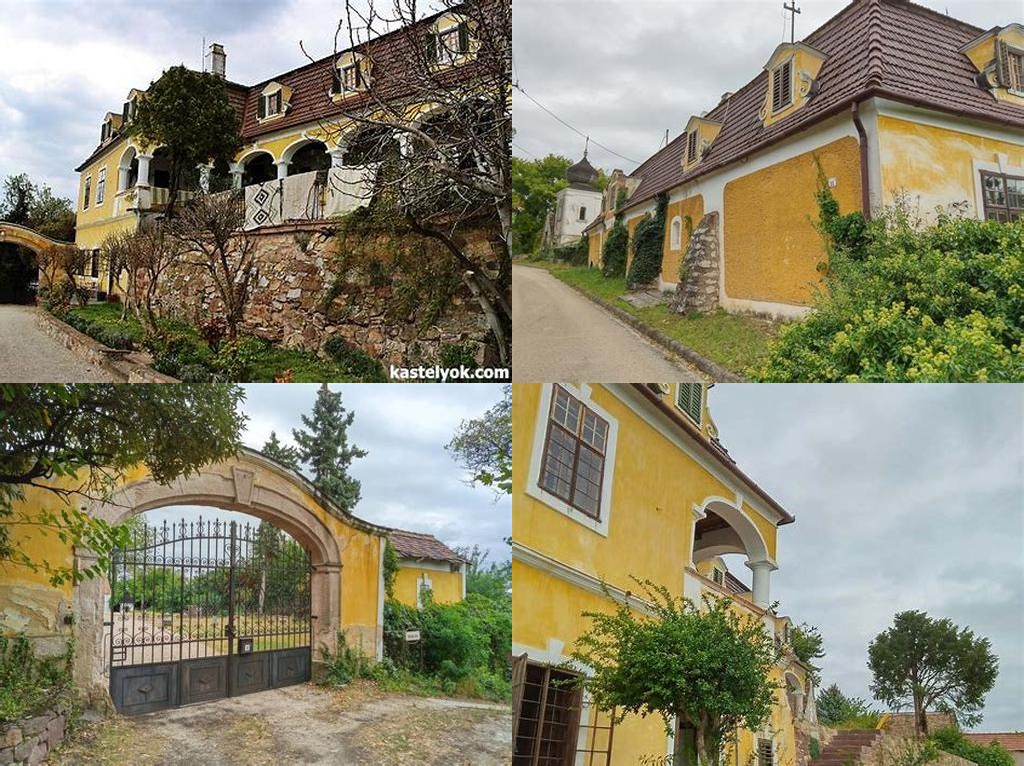
Pongrácz-kastély quietly surveys the charming village life in Paloznak, perched on the gentle slopes that roll down to Lake Balaton’s northern shore. The castle offers an intriguing blend of stately grandeur and understated village intimacy, making it an unmissable fragment of European history tucked away from the typical tourist hustle. Many travelers pass through the Balaton region without ever hearing about this delightful gem, but those who discover the castle leave with the sensation of having found a secret link to Hungary’s past—one that is both palpable and welcoming rather than austere or intimidating.
The roots of Pongrácz-kastély run deep into the region’s history, entwined with the proud legacy of the Pongrácz family, who settled in Paloznak centuries ago. The castle as you see it today largely reflects the 19th-century vision of its inhabitants, but the estate itself began to take shape as far back as the 18th century. It saw troubled times and times of peace, surviving turbulent historical events that swept across Europe, such as the Hungarian Revolution of 1848. While the castle didn’t play host to grand battles or dramatic sieges, its particular story is recounted in the careful preservation of family portraits, estate ledgers, and the elegant crest that still peers from above the main doorway. Guests coming to Paloznak often marvel at how the castle’s slightly faded but dignified façade exudes a rare sense of lived-in history, telling tales not of lofty emperors, but of generations of landowning nobility anchoring village life.
Unlike other stately homes or fortresses, Pongrácz-kastély actively blends the romance of a country manor with the everyday rhythm of rural Balaton-felvidék. The castle does not dominate with towering spires or ostentatious decoration; instead, it invites with a lovable simplicity. Mossy stone walls enfold arched windows, and an old lime tree guards the entrance, its roots as entwined with the history of the place as any document or family tree. Inside, original elements like creaking wooden floorboards and floral ceiling stencils set the stage for a home that has always balanced refinement with comfort. It’s not hard to imagine concerts in the main hall, or dinners that stretched for hours as cool evening breezes drifted in from the lake.
Wandering the grounds, visitors can almost hear the footsteps of generations echoing through the corridors. The park around the castle blends into vineyards and orchards, which have nourished the village—and the castle’s kitchens—for centuries. The steady rhythm of grape cultivation and wine pressing is still present in Paloznak today. Local families continue to maintain this tradition, making it easy to imagine how Pongrácz-kastély may have functioned as the social epicenter for harvest festivals, intimate family gatherings, and strategic discussions about village matters.
The castle is not a sterile museum frozen in time. Rather, it’s woven naturally into the daily fabric of the village, and this makes a visit rather special. When you arrive, don’t expect velvet ropes or carefully labeled exhibit cases. Instead, imagine stepping into the shoes of a distant cousin returning for a summer holiday—greeted by the hush of old rooms, the faint scent of wax polish, and perhaps a stray cat snoozing in the dappled garden sunshine. The castle’s stories are silently waiting to be found in a half-open door, or a timeworn gate that creaks just enough to hint at the secrets it has kept safe for centuries.
For travelers interested in authentic history, Pongrácz-kastély is rich with quiet sophistication and accessible charm. Context is everything, and the castle is best experienced as part of a wider exploration of the Balaton Uplands—a land dotted with medieval churches, winding stone lanes, and endless fields of lavender and vine. After a morning of cycling through Paloznak’s streets and up to the edges of fragrant gardens, stepping into the shadow of the estate is both restful and inspiring. You’ll find yourself lingering on stone benches, staring out at the panorama of water and sky, and realizing that this is what history feels like when no one is rushing you through it.
In a world of grand monuments and crowded palaces, the gentle dignity of Pongrácz-kastély invites visitors not only to look, but to linger, to listen, and—if they’re lucky—to sense the deep-rooted stories flowing through one of Paloznak’s oldest landmarks. Whether you are drawn by an interest in rural architecture, the tangle of noble family histories, or simply the pleasure of slowing down in a beautiful place, this castle offers something quietly memorable that will echo long after you leave.





